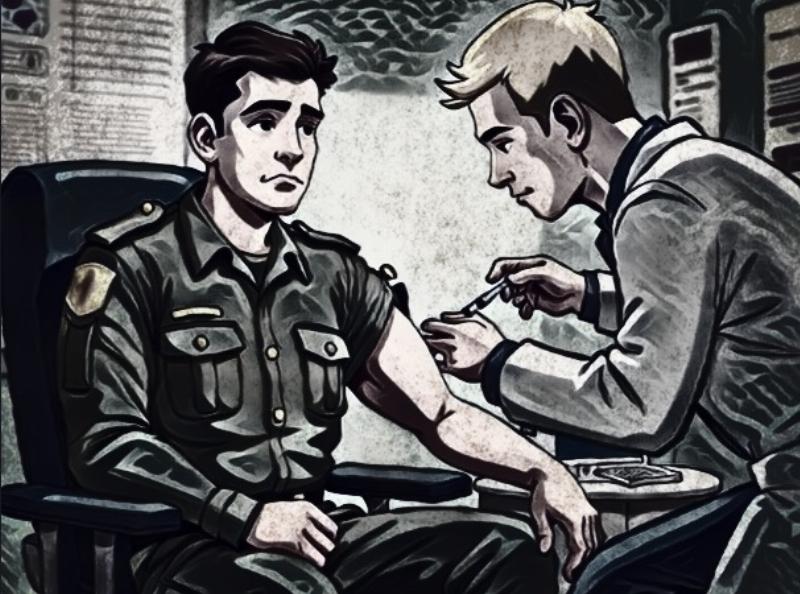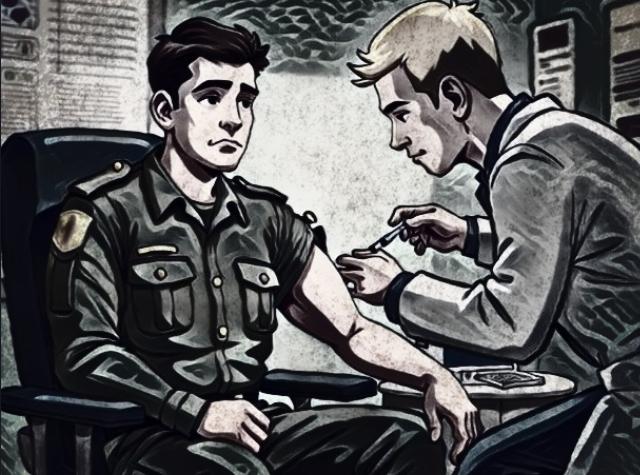


The Nuremberg Trials were an attempt to bring justice to the Nazis for some of the most reprehensible criminal acts of World War II. One subset of those trials was known as “The Doctors’ Trial,” so named because it prosecuted some 23 distinguished medical scientists and physicians charged with murder and unspeakable torture through medical experimentation on concentration camp prisoners.
One of the most important outcomes of that trial—aside from meting out justice to the medical monsters—was the establishment of the Nuremberg Code, which offered a 10-point statement outlining proper limits on human experimentation moving forward. It proclaimed that such experimentation is justified only when the participation is voluntary, when the results benefit society, and when it is conducted in accord with basic principles that “satisfy moral, ethical, and legal concepts.” It memorialized what most decent people would have thought was already common sense and practice for a civilized society.

Image created using AI.
Notwithstanding the proscriptions of the Nuremberg Code, the Department of Defense authorized the use of unlicensed medications in the first Gulf War. Specifically, DoD obtained informed consent waivers from the FDA to allow the involuntary administration of unlicensed medications as a prophylactic against potential Iraqi chemical and biological weapons.
These medications were postulated by some medical professionals as a cause of so-called Gulf War Syndrome. In light of this, Congress passed a specific prohibition on the use of unlicensed medications on Service Members without their informed consent. The statute, codified at 10 USC §1107, requires informed consent from a Service Member before the administration of an unlicensed medication. On the president can waive this requirement by ordering a waiver of informed consent in certain exigencies.
The statute got its first test when a federal court shut down DoD’s involuntary anthrax vaccination program in 2004 after a judge determined the anthrax vaccine had not been properly licensed by the FDA for use in a military context.
But nearly 20 years later, our country again flirted with violation of this statute and the Code as it mandated experimental COVID-19 vaccines for our Service Members. That injustice has yet to be fully addressed. Over 8,000 active-duty Service Members were involuntarily separated after failing to receive a religious exemption or other accommodation from the vaccine mandate and then refused to get vaccinated after being ordered to do so.
Yes, the vaccine mandate was rescinded by Secretary Austin through the National Defense Authorization Act (NDAA) in 2023, but not before tremendous physical, reputational, and financial damage was inflicted on thousands of personnel—damage that continues still. Additionally, despite the rescinding, the Army continued to apply the mandate to National Guard and Reservist members.
Regarding the physical risk and damage, most of the public is not aware that the vaccines administered to our Service Members were not FDA-approved but rather were authorized by an FDA Emergency Use Authorization (EUA) or the World Health Organization (WHO). While the most common vaccine, the Pfizer-BioNTech, was eventually given full FDA approval, it wasn’t fully vetted at the time of use with Service Members, and doses of other vaccines were also administered.
Evidence of the adverse effects from the vaccines is still being uncovered. In 2022 Senator Ron Johnson began pursuing clarification on the validity of the DMED (Defense Medical Epidemiology Database) data after military medical whistleblowers reported massive increases for vaccinated Service Members in hypertension (up 2,181%), multiple sclerosis (up 680%), and breast cancer (up 487%) and many more maladies.
Last month, a new Senate report from Senator Johnson revealed that U.S. officials delayed warning the public about heart inflammation risks from the COVID-19 vaccine. According to the report, as of April 25, there were a reported 38,607 deaths and more than 1.6 million “adverse events worldwide associated with the administration of COVID-19 injections.” Further, the most impacted age groups were 16-17 years and 18-24 years—the wheelhouse of service personnel.
Service Members who declined the vaccine were also exposed to significant reputational damage. Unvaccinated military members faced and/or are still facing repercussions, including denied benefits, ineligibility for promotion, being non-deployable, letters of reprimand, and potentially diminished employment prospects. Some were told that they faced potential court-martial and dishonorable discharge, along with Article 92 punishment under the Uniform Code of Military Justice (UCMJ). Article 92 is a bad-conduct discharge that could result in the forfeiture of all pay and confinement for six months.
Some unvaccinated reservists were involuntarily transferred into the Non-Participating Individual Ready Reserve (IRR), “a state of limbo in which they can’t participate in drills; can’t receive military orders, pay or retirement; are ineligible for military healthcare; and have to fully pay life insurance on their own in order to keep it.”
The total financial damage to Service Members who declined the vaccine is difficult to measure, but significant. Those members were not only threatened with loss of employment, career, and pensions through involuntary discharge accompanied by potential disciplinary action, but also with having to pay back scholarships, education, or other training costs. Further, the costs of injuries and illness potentially related to the vaccine are incalculable. While there has been some success with individual service member lawsuits, compensation for the vast majority of the affected remains wanting.
Standard protocol is for Service Members to pursue grievances through the Boards for Correction of Military Records (BCMR) or equivalent for Merchant Mariners. But these committees will consider individual cases only and are notoriously slow and protracted in their progress.
All of this prompted senior leaders of Stand Together Against Racism and Radicalism in the Services (STARRS), The MacArthur Society, and Calvert Task Group to pen an open letter to President Trump requesting an order for full and unconditional pardons, amnesty and remedies for all Service Members negatively impacted in any way by the military’s Anthrax and COVID mandates. The letter also asks the Secretary of Defense and Service Secretaries to remand all previously denied BCMR cases for expedited reconsideration to promptly provide full and fitting relief.
The damage inflicted by these experimental vaccines may have violated the Nuremberg Code and needs to be addressed. Although much of the damage from these experimental vaccines and the policies and actions surrounding them is irreparable, some is still possible. We should all contact our appropriate elected officials, direct them to this letter, and encourage their support for pardons/amnesty for alleged COVID-related offenses by Service Members.
Greg Salsbury, Ph.D., is a former president of Western Colorado University and a Board of Advisor member for STARRS.US.
